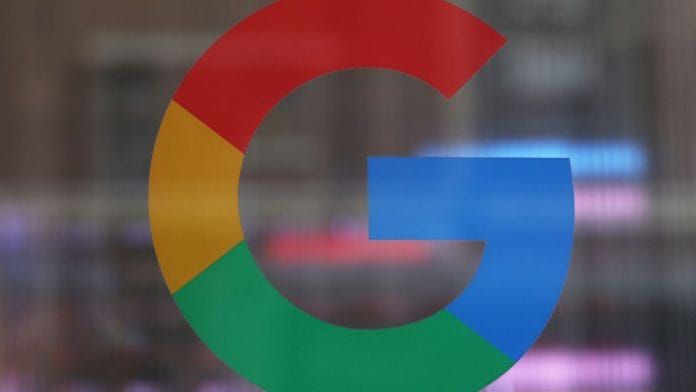In what could prove to be significant in the global debate to rein in the powers of the Big Tech firms, the National Company Law Appellate Tribunal, this week, upheld a penalty of Rs 1,337.76 crore imposed by India’s competition regulator on Google for abusing its dominant position in the Android market.
The order could play a significant role in shaping internet regulation not only in India —which is among the biggest markets for big technology firms— but also globally, as various government debates are taking place over the need to regulate such firms to prevent abuse of their dominant position. That is why this verdict is ThePrint’s newsmaker of the week.
The Competition Commission of India had in October 2022, found the technology giant guilty of abusing its dominant position in the Android ecosystem, following a probe that started in 2019.
Google, whose Android operating system holds nearly 98 per cent share of the smartphone market, filed an appeal with the NCLAT, however, it declined to grant an immediate stay on the CCI order. They also moved the Supreme Court which too refused interim relief to the company against the CCI order. However, it asked NCLAT to decide on the tech giant’s appeal by 31 March 2023.
While Google has been directed to deposit the penalty amount within a period of 30 days, the company has managed a partial victory as four of the 10 conditions that the CCI had imposed on it — including preventing sideloading of apps and sharing of Play Store APIs (Application Programming Interface) with original equipment manufacturers (OEMs) — were set aside by the NCLAT in its 189-page order.
Also Read: 6G Vision shows Modi govt doesn’t want to miss the bus like India did on 2G, 3G, 4G
Abuse of dominance
The NCLAT noted that the CCI investigation did not violate principles of natural justice, and held that a number of Google’s practices pointed to an abuse of dominance. This was in concurrence with the CCI order, which noted that in some cases their market dominance also “limited technical or scientific development to the prejudice of the consumers”.
A significant CCI direction upheld by NCLAT is that Google shall allow users, during the initial device setup, to choose their default search engine for all search entry points.
“Users should have the flexibility to easily set as well as easily change the default settings in their devices, in minimum steps possible,” the order said. The tribunal also upheld that Google should not force OEMs to pre-install its bouquet app and that the licensing of Play Store to OEMs should not be linked with the requirement of pre-installing Google apps.
The order states that Google shall not offer any incentives to OEMs for ensuring exclusivity for its search services. Additionally, it directed that “Google shall not incentivise or otherwise obligate OEMs for not selling smart devices based on Android forks.” Android forks refer to alternate or modified versions of Google’s Android Operating System that can be used by manufacturers to power phones.
Also Read: How the CCI anti-trust battle involving Google played out for map app wars in India
Relief on some fronts
But the NCLAT didn’t uphold all of CCI’s directions. On their direction regarding sharing of APIs, the tribunal said that APIs have not been found as part of any abusive content. “We do not find any material in the impugned order as to why access to such APIs be provided to Google’s competitors, app developers and OEMs without going through necessary technical and commercial engagement with Google,” read the order.
They also struck down a CCI direction that asked Google to allow the developers of app stores to distribute their app stores through Play Store.
“…when the Commission itself found Google has not abused its dominant position in Play Store market by imposing unfair and discriminatory terms and conditions on App developers, there was no occasion to direct the Appellant to distribute the App Store of third party App developers, without accepting the terms and conditions of the Appellant…We, thus, are of the view that direction issued in paragraph 617.9 is unsustainable and deserves to be set aside,” the order read.
The tribunal rejected Google’s plea over the computation of the penalty. “…while calculating the “relevant turnover”, the CCI has correctly considered the sum total of revenue of various segments/heads in India arising out of the entire business of Google India’s operations of Android OS-based mobiles.”
Also Read: OpenAI’s ChatGPT kickstarted AI revolution. Get ready for a new arms race with GPT-4
Internet regulation
In a similar case, the European Commission (EC) initiated proceedings against Google’s Android licensing practices in Europe and found the tech giant guilty of abusing its dominant position in the relevant market in the European Union. Google now faces a fine of about €4 billion.
Google’s legal worries seem to be far from over. Even as the company is reviewing the current NCLAT order to figure out the next course of legal action, it has another penalty of over Rs 900 crore hanging over its head. In a separate order, the CCI had imposed a fine of Rs 936.44 crore on Google for abusing its dominant position with respect to its Play Store policies.
Post this order the company announced certain changes to Android and Play Store in India, including introducing the option of a third-party billing system on a pilot basis.
The competition regulator is currently probing into allegations that Google had abused its dominant position with Android in India’s smart television market, the findings of which are expected to be out soon. It is also probing anti-competitive policies by Google following a complaint by News Broadcasters & Digital Association.
Views are personal.
(Edited by Theres Sudeep)






